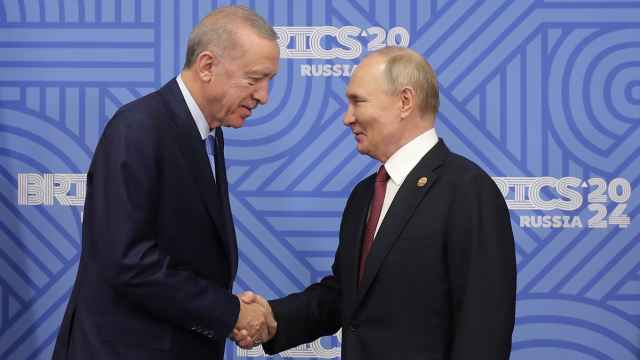Карман: pocket, sleeve, pullout, money
As winter on Ice Planet Moscow marches on, broken only by brief harbingers of the end of the world — blizzard with sunshine accompanied by thunder and lightning — I’ve taken to entertaining myself with a game I call “Name That Thing!“ Discovering what something is called, in either Russian or English, is sublimely satisfying, and reminds me to count my blessings. So I thank all of the nut cases who write 14-page Wikipedia articles on road construction and advertising display paraphernalia. I hope you guys never get a life.
Several searches involved the word карман (pocket), which turns out to be a very productive little noun indeed. Карман refers to any pouch-like thing, including the paper or plastic holder for a CD inside a book cover. This was Round 1 of “Name That Thing!“ In English, it’s another piece of clothing — a sleeve.
Карман is also a stand-in for a person’s budget or financial capabilities. When something is affordable, you can say: Это мне по карману (literally, “it fits my pocket”). When it isn’t: Большинству россиян ипотека не по карману (The majority of Russian citizens can’t afford a mortgage). When something wrecks your budget, you can say бить or ударить по карману (hits you in your wallet).
At the other end of the wealth spectrum, набивать/набить карман (to fill your pockets) has the sense of getting rich, often quickly and dishonestly. Пока он крал, делал сделки и набивал себе карманы, никто его не трогал (While he was stealing, cutting deals and lining his pockets, no one touched him).
Other Russian expressions use pockets more figuratively. If you work without pay, you can snarl: Спасибо в карман не положишь (“Thank you” doesn’t pay the rent; literally, “you can’t put ‘thanks’ in your pocket”). If someone is a good speaker, you can say: За словом в карман не лезет (he’s never at a loss for words; literally, “he doesn’t slip into his pocket for a word”).
And then there’s the odd expression держи карман шире (literally, “hold your pocket wide open”), which is an exclamation of disbelief that something good will happen: “Right! Don’t hold your breath!” Huh? It turns out that карман was originally fastened on the outside of clothing, like a purse, and that the expression had a tagline, now mostly forgotten: Держи карман шире, широким книзу (Hold your purse wide open — upside down). So you think you’ll get paid? Dream on!
Round 2 of “Name That Thing!“ concerned карманы on roadways. They make more sense to English speakers if you think of them as pouches and recall the 12th meaning of pouch as a verb: to protrude or pouch out. So дорожные карманы are places where the roadway is extended out. In English, these extensions have various names: Сделаем специальные “карманы” для поворота направо и для остановок общественного транспорта (We’ll make special right turn lanes and bus turnouts). Карман in the sense of a wide shoulder — a place to pull off and let speeding jerks pass you — is called a pull-off.
In Round 3, I sought the name of дорога-дублёр, a small road running parallel to a major highway. Depending on where you live, this is called a frontage, access or service road.
So now you know. Satisfying, isn’t it? Not quite as satisfying as spring, but it will have to do.
Michele A. Berdy, a Moscow-based translator and interpreter, is author of “The Russian Word’s Worth” (Glas), a collection of her columns.
A Message from The Moscow Times:
Dear readers,
We are facing unprecedented challenges. Russia's Prosecutor General's Office has designated The Moscow Times as an "undesirable" organization, criminalizing our work and putting our staff at risk of prosecution. This follows our earlier unjust labeling as a "foreign agent."
These actions are direct attempts to silence independent journalism in Russia. The authorities claim our work "discredits the decisions of the Russian leadership." We see things differently: we strive to provide accurate, unbiased reporting on Russia.
We, the journalists of The Moscow Times, refuse to be silenced. But to continue our work, we need your help.
Your support, no matter how small, makes a world of difference. If you can, please support us monthly starting from just $2. It's quick to set up, and every contribution makes a significant impact.
By supporting The Moscow Times, you're defending open, independent journalism in the face of repression. Thank you for standing with us.
Remind me later.







